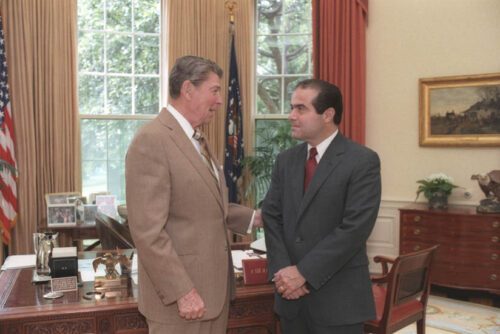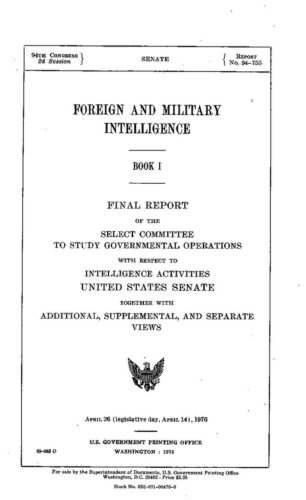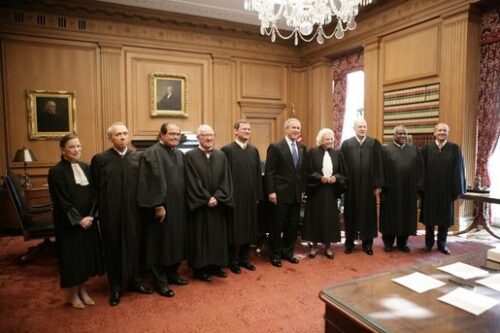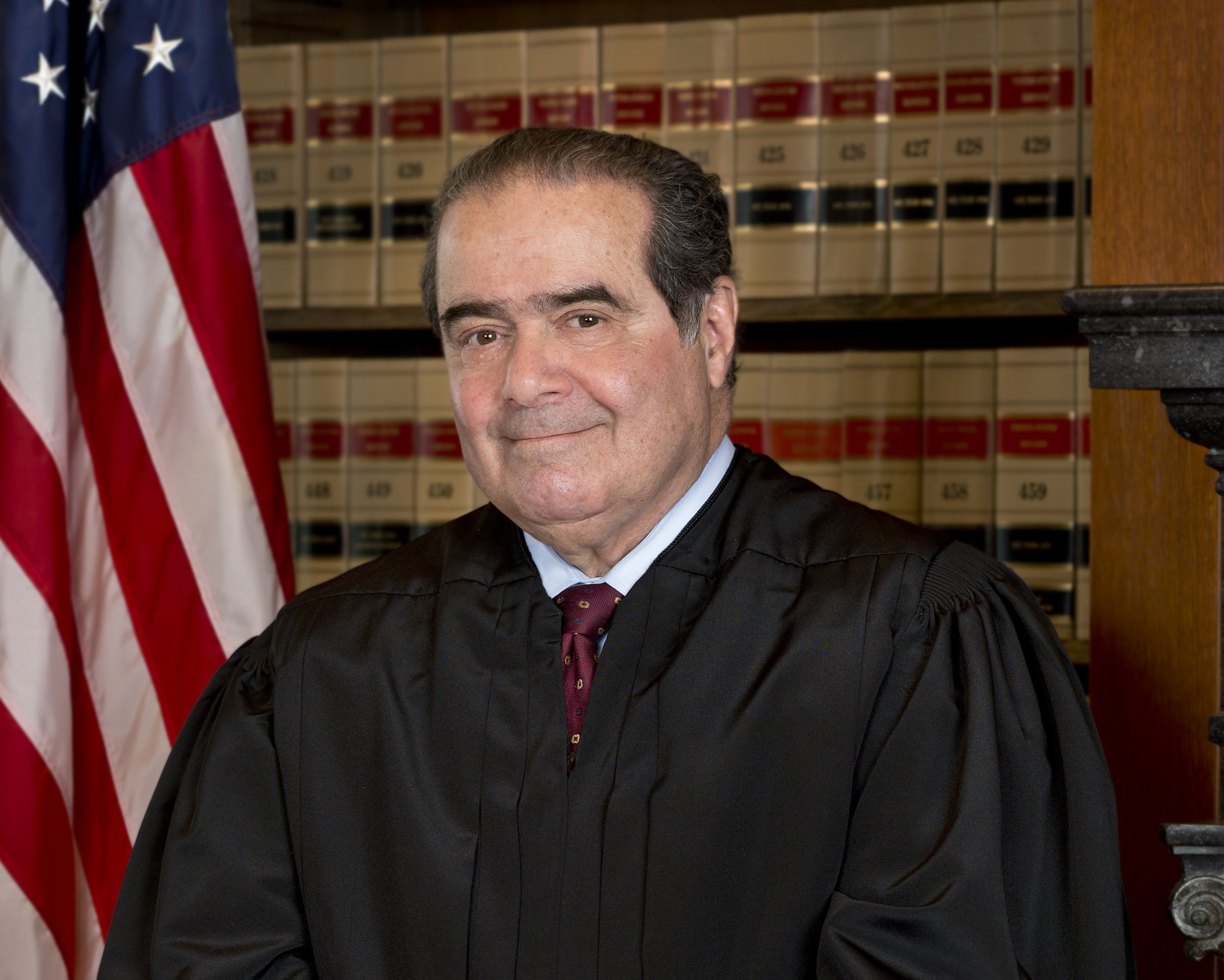Associate Justice Antonin Scalia (2013). Photo: US Supreme Court Collection.
Antonin Scalia, the late Supreme Court justice who died in 2016, was known for his originalist interpretation of the Constitution and his conservative views on various legal issues. However, his impact on the intelligence community and national security matters is less widely discussed.
He was born on March 11, 1936, in Trenton, New Jersey, to an Italian immigrant father who taught Romance languages at Brooklyn College and an Italian American mother who taught elementary school. He attended a Roman Catholic high school in New York City and graduated at the top of his class from Georgetown University (A.B., 1957) in Washington, D.C. He attended Harvard Law School, where he edited the prestigious Harvard Law Review and graduated in 1960. He then worked for a law firm in Cleveland, Ohio (1961–67), before moving to Charlottesville, Virginia, where he taught at the University of Virginia School of Law (1967–74).
During his tenure at Virginia, he served the federal government as general counsel to the Office of Telecommunications Policy (1971–72) and as chairman of the Administrative Conference of the United States (1972–74). In 1974 Scalia left academia to serve as assistant attorney general in the Office of Legal Counsel of the US Department of Justice. Scalia resumed his academic career at Georgetown University (1977) and the University of Chicago Law School (1977–82). For part of the latter period, he served as editor of Regulation, a review published by the conservative American Enterprise Institute. In 1982 President Ronald Reagan nominated him to the US Court of Appeals for the District of Columbia Circuit. Nominated by Reagan to the Supreme Court in 1986, he won unanimous confirmation in the US Senate.

Scalia started his government career as an assistant attorney general for the Office of Legal Counsel under President Gerald Ford from 1974 to 1977. In this role, he was involved in drafting Executive Order 11905, which was issued on February 18, 1976, to reform the US intelligence community after the scandals of the Watergate era and the Church Committee investigations.
The Church Committee
The Church Committee was a US Senate select committee that investigated the intelligence activities of the CIA, FBI, NSA, and IRS in 1975. It was chaired by Senator Frank Church and exposed various alleged abuses and illegalities, such as attempts to assassinate foreign leaders, spying on Martin Luther King Jr., and monitoring the political activities of other US citizens. It was chaired by Senator Frank Church (D-Idaho). The committee held a series of hearings and published 14 reports as it probed the legality of intelligence operations.

The committee’s findings also led to important reforms: President Ford issued Executive Order 11905 banning political assassinations; Congress passed the Foreign Intelligence Surveillance Act (FISA) of 1978 to regulate domestic surveillance; and the permanent US Senate Select Committee on Intelligence was established to oversee the intelligence community.
Executive Order 11905 established new oversight mechanisms, such as the Intelligence Oversight Board and the Operations Advisory Group and prohibited any US government employee from engaging in or conspiring to engage in political assassination. The order also created a new National Security Committee on Foreign Intelligence, chaired by the Director of Central Intelligence, and replaced the 40 Committee, which was responsible for oversight of covert activities, with the Operations Advisory Group, composed of senior White House, CIA, State Department and Department of Defense representatives. The order was the first of its kind to ban assassination and was later superseded and strengthened by Executive Orders 12036 and 12333.
Executive Order 12036 was signed by President Jimmy Carter on January 24, 1978, and imposed further restrictions on and reformed the US intelligence community along with further banning indirect US involvement in assassinations. The order also set up new duties and requirements for two National Security Council cabinet-level committees that had been previously created by Carter in 1977: the Policy Review Committee and the Special Coordination Committee. The Policy Review Committee was given the responsibility of defining priorities for intelligence collection and analysis, while the Special Coordination Committee was responsible for approving covert actions.
Executive Order 12333 was signed by President Ronald Reagan on December 4, 1981, and was intended to extend powers and responsibilities of US intelligence agencies and direct the leaders of US federal agencies to co-operate fully with CIA requests for information. The order also affirmed the ban on assassination in slightly different language: “No person employed by or acting on behalf of the United States Government shall engage in, or conspire to engage in, assassination”. The order also laid out roles for various intelligence agencies, including the Departments of Defense, Energy, State, and Treasury, and provided guidelines for actions of intelligence agencies. Scalia also testified before the Pike Committee, a congressional committee that investigated the activities and abuses of the CIA and other intelligence agencies.
US Court of Appeals
After he was appointed as a judge on the US Court of Appeals for the DC Circuit. Scalia continued to deal with cases related to national security and foreign affairs, such as whether Congress could cut off funding for military operations in Nicaragua and whether former CIA agent Philip Agee could be denied a passport for disclosing classified information. Scalia’s experience in the intelligence field influenced his views on the separation of powers, executive privilege, and judicial deference to the political branches in matters of national security.
He developed a constitutional methodology of originalism that emphasized fidelity to the text and history of the Constitution over other modes of interpretation. He also championed a theory of unitary executive that gave broad powers to the president in foreign affairs and national security. He was skeptical of judicial activism and judicial supremacy that he saw as undermining democratic accountability. He was a fierce critic of substantive due process that he regarded as illegitimate judicial invention. He was a staunch defender of federalism that he believed would protect individual liberty from an overreaching federal government.
US Supreme Court
He served as an associate justice on the US Supreme Court from 1986 until his death in 2016, becoming one of the most influential and controversial justices in American history. He was known for his strong legal conservatism, his witty and often scathing writing style, and his advocacy of originalism and textualism as methods of constitutional and statutory interpretation.

He wrote more than 800 opinions for the court, including some landmark majority opinions and many influential dissents. Some of the notable opinions and dissents in cases that had a direct impact on the intelligence community included:
Scalia’s dissent in Hamdi v. Rumsfeld (2004), where he argued that the executive branch had no authority to detain a US citizen as an enemy combatant without congressional authorization or a trial by jury. This opinion was controversial because it challenged the executive’s power to conduct the war on terror, and because it implied that the citizen could be tried for treason instead.
Scalia’s majority opinion in Kyllo v. United States (2001), where he held that the use of a thermal imaging device to detect heat emanating from a home constituted a search under the Fourth Amendment, and required a warrant. This opinion was controversial because it expanded the scope of privacy protection against new technologies, and because it rejected the government’s argument that the device only revealed lawful activity.
Scalia’s concurring opinion in Clapper v. Amnesty International USA (2013), where he dismissed the plaintiffs’ claim that they had standing to challenge the constitutionality of a law that authorized warrantless surveillance of foreign targets, because they could not prove that they were actually spied on. This opinion was controversial because it made it harder for anyone to challenge the legality of secret surveillance programs, and because it ignored the possibility of a chilling effect on free speech and association.
Scalia’s dissent in Boumediene v. Bush (2008), where he criticized the majority for granting habeas corpus rights to foreign detainees held at Guantanamo Bay and warned that the decision would endanger national security and embolden terrorists. This opinion was controversial because it denied any constitutional rights to non-citizens outside US territory, and because it questioned the judiciary’s role in reviewing executive decisions on national security.
Scalia was a devout Roman Catholic who believed that his faith did not affect his judicial reasoning. He was married to Maureen McCarthy Scalia for 55 years and had nine children and 36 grandchildren. He died on February 13, 2016, at a ranch in Texas while on a hunting trip, at the age of 79.
*The views and opinions expressed on this website are solely those of the original authors and contributors. These views and opinions do not necessarily represent those of Spotter Up Magazine, the administrative staff, and/or any/all contributors to this site.

